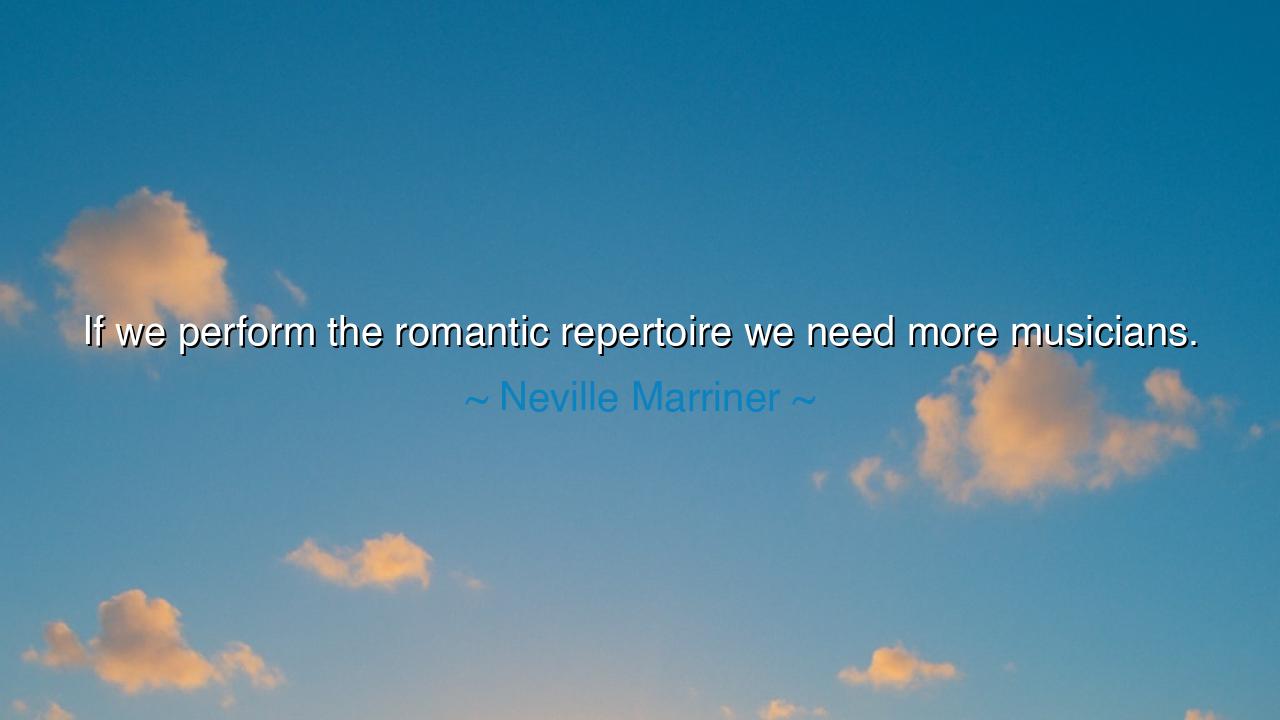
If we perform the romantic repertoire we need more musicians.






“If we perform the romantic repertoire we need more musicians.” Thus spoke Neville Marriner, conductor of great renown, whose words, though practical in tone, carry a truth that reaches beyond the concert hall and into the very essence of human striving. For the music of the Romantic era was not crafted for smallness, but for grandeur. It demanded not a handful of players but an army, not a chamber but a vast hall. So too in life, the great works, the bold visions, cannot be achieved by few hands alone—they require the gathering of many souls, united in purpose.
The romantic repertoire—Beethoven’s symphonies, Wagner’s operas, Mahler’s expansive works—was born of an age when the spirit of man sought to break boundaries, to shout its passions into eternity. No longer content with the simplicity of earlier times, composers demanded orchestras swelling with strings, brass that roared like thunder, and percussion that shook the earth. Marriner, in his wisdom, recognized this truth: to give such music life requires not only skill but multitude, for a single player cannot echo the cry of nations, nor can a small ensemble summon the storm of the human heart.
History itself bears witness to this demand. When Berlioz unveiled his Symphonie Fantastique in 1830, audiences were overwhelmed by its scale. Here was not music for polite gatherings but for the grand stage of existence. Its vision of obsession, dream, and despair needed more musicians, for no fewer could hold the weight of such passion. It was as if Berlioz declared to the world: if you would understand the human soul






AAdministratorAdministrator
Welcome, honored guests. Please leave a comment, we will respond soon